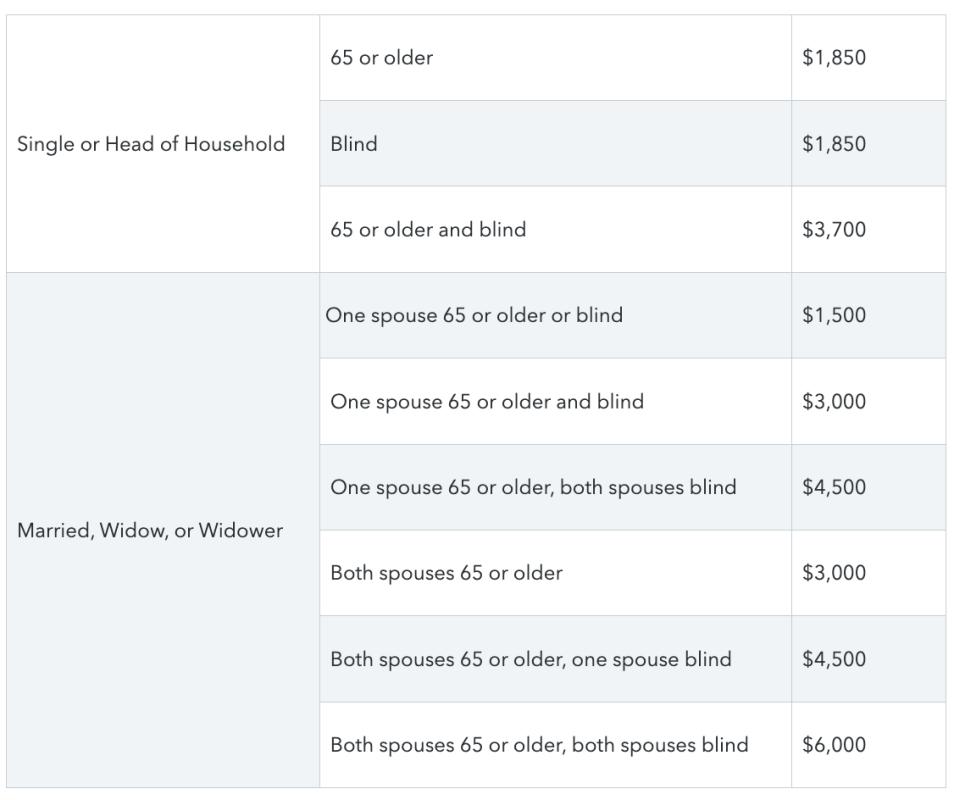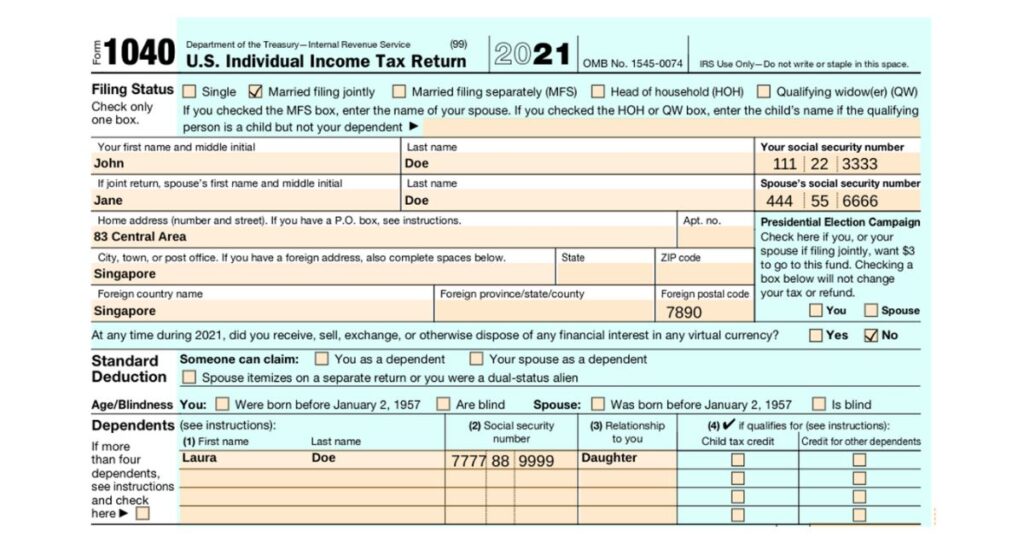The Foreign Earned Income Exemption Explained: A Guide to Enhancing Your Basic Reduction
The Foreign Earned Revenue Exclusion (FEIE) is a crucial tax stipulation for united state citizens and resident aliens living abroad. It allows eligible migrants to leave out a significant portion of their foreign-earned income from government tax obligations. Comprehending the nuances of FEIE can cause considerable tax cost savings. Lots of people overlook important details that can affect their qualification and advantages. Discovering these elements might disclose chances for improved tax obligation end results.
Understanding the Foreign Earned Income Exemption
Although several migrants look for opportunities abroad, understanding the Foreign Earned Revenue Exclusion (FEIE) is vital for managing their tax obligation obligations. This provision permits united state people and resident aliens living overseas to leave out a certain quantity of their earned earnings from federal taxes. The FEIE was developed to ease the tax worry on individuals that stay outside the United States, acknowledging the one-of-a-kind monetary challenges they may face.

Qualification Demands for FEIE

Exactly how to Claim the FEIE
To successfully assert the Foreign Earned Revenue Exemption (FEIE), taxpayers must initially verify their qualification based on certain criteria - FEIE Standard Deduction. The procedure entails several steps, including submitting the appropriate types and providing needed documentation. Understanding these needs and treatments is essential for making the most of tax obligation advantages while living abroad
Qualification Requirements
Eligibility for the Foreign Earned Earnings Exclusion (FEIE) rests on meeting particular standards established by the internal revenue service. To qualify, individuals have to be U.S. citizens or resident aliens who earn income while functioning abroad. They require to establish a foreign tax home, which suggests their primary place of company is outside the USA. Additionally, candidates must meet either the Bona Fide House Examination or the Physical Visibility Test. The Bona Fide Residence Examination calls for that a taxpayer lives in a foreign nation for an entire tax year, while the Physical Existence Test requires investing at the very least 330 complete days in an international country throughout a 12-month duration. Fulfilling these demands is crucial for declaring the FEIE.
Filing Refine Steps
Just how can one properly browse the process of claiming the Foreign Earned Income Exemption (FEIE)? People have to establish their eligibility based on the physical visibility examination or the bona fide house examination. As soon as verified, they need to complete IRS Kind 2555, which information foreign income and residency. This type should be affixed to their yearly income tax return, usually Kind 1040. It is vital to accurately report all international made revenue and guarantee compliance with the internal revenue service standards. In addition, taxpayers need to maintain proper documentation, such as international tax obligation returns and evidence of residency. By following these actions, individuals can efficiently assert the FEIE and potentially decrease their gross income substantially, enhancing their overall economic placement.
Determining Your Foreign Earned Earnings Exclusion
While lots of migrants seek to maximize their monetary benefits abroad, comprehending the computation of the Foreign Earned Earnings Exclusion is essential for exact tax coverage. The This Site Foreign Earned Income Exclusion enables certifying individuals to omit a certain amount of their international revenues from U.S. tax, which is adjusted every year for inflation. To determine this exemption, expatriates must determine their total international gained income, which typically consists of wages, incomes, and specialist charges made while living in a foreign nation.
Next off, they have to finish internal revenue service Form 2555, offering details concerning their international residency and job condition. FEIE Standard Deduction. It's crucial to satisfy either the bona fide residence test or the physical existence test to receive the exclusion. Once these aspects are established, the optimum allowed exclusion amount is used, reducing the individual's taxable earnings substantially. Exact computations can lead to significant tax obligation financial savings for expatriates living and working abroad
The Impact of FEIE on Other Tax Benefits
The Foreign Earned Revenue Exemption (FEIE) can affect a person's eligibility for sure tax obligation benefits, consisting of the standard deduction. By leaving out international earned earnings, taxpayers may find their modified gross earnings affected, which subsequently can influence their certification for different tax credit scores. Comprehending these communications is essential for maximizing tax outcomes while living abroad.
Interaction With Standard Deduction
When individuals get the Foreign Earned Income Exclusion (FEIE), their eligibility for the standard reduction might be affected, potentially modifying their general tax responsibility. The FEIE permits taxpayers to leave out a specific amount of earned earnings from U.S - FEIE Standard Deduction. taxation, which can result in a minimized taxed earnings. Therefore, link if the omitted income exceeds the conventional reduction, it can lessen the advantage of asserting that reduction. Furthermore, taxpayers that utilize the FEIE may locate that their capability to detail reductions is additionally affected, as specific expenditures might be influenced by the exclusion. Understanding this communication is vital for expatriates to optimize their tax obligation advantages while making certain conformity with U.S. tax obligation legislations
Qualification for Tax Obligation Credits
Steering through the intricacies of tax obligation credit reports can be challenging for expatriates, particularly because the Foreign Earned Revenue Exclusion (FEIE) can considerably influence eligibility for these advantages. The FEIE enables eligible people to exclude a significant section of their international profits from united state tax, but this exclusion can likewise influence accessibility to different tax obligation credit ratings. For example, taxpayers who make use of the FEIE may locate themselves disqualified for credit ratings like the Earned Revenue Tax Credit Score (EITC), as these credit reports normally require taxable earnings. In addition, the exclusion may limit the capacity to claim specific reductions or credit scores connected with dependents. Recognizing the interplay between the FEIE and offered tax obligation credit ratings is necessary for expatriates aiming to optimize their tax scenario.

Usual Blunders to Avoid When Declaring FEIE
Generally, expatriates experience numerous mistakes while declaring the Foreign Earned Earnings Exemption (FEIE), which can lead to expensive errors or missed opportunities. One constant blunder is failing to satisfy the physical visibility or bona fide residence test, which is crucial for eligibility. In addition, migrants commonly ignore the requirement to submit Kind 2555 properly, causing incomplete or imprecise submissions.
An additional typical error includes inaccurately calculating foreign made revenue, as several do not make up all relevant earnings resources. Some migrants erroneously think they can exclude all their income, unaware of the limitations on the exclusion amount. Neglecting to maintain correct paperwork, such as travel dates and residency condition, can endanger an insurance claim. Misconstruing the effects of the FEIE on other tax credit ratings may lead to unintentional tax responsibilities. Awareness of these pitfalls can facilitate a smoother declaring procedure and make the most of possible benefits.
Resources for Expats Navigating U.S. Tax Obligations
Maneuvering U.S. tax commitments can be challenging for migrants, particularly after encountering risks in claiming the Foreign Earned Income Exemption (FEIE) To assist browse these intricacies, a selection of sources are readily available. The internal revenue service site gives comprehensive details on tax laws, forms, and FAQs particularly customized for expatriates. Additionally, companies like the American Citizens Abroad (ACA) and the Expat Tax Professionals deal advice and assistance to ensure conformity with tax legislations.
Online online forums and communities, such as the Expat Online forum, permit migrants to share experiences and insights, fostering a helpful atmosphere for those dealing with comparable obstacles. In addition, tax obligation preparation software program, like copyright and H&R Block, usually includes functions made for deportees, making the declaring procedure extra straightforward. Engaging with these sources can empower expatriates to much better comprehend their tax responsibilities and make best use of advantages like the FEIE.
Frequently Asked Concerns
Can I Declare FEIE if I'M Freelance Abroad?
Yes, freelance individuals abroad can declare the Foreign Earned Revenue Exemption (FEIE) To qualify, they must meet details needs regarding residency and earnings, ensuring they stick to IRS guidelines for expatriates.

Is the FEIE Applicable to Foreign Pensions?
The Foreign Earned Revenue Exclusion (FEIE) is not applicable to international pension plans. Pension plans are considered unearned income and do not receive the exemption, which especially relates to earned income from work or self-employment abroad.
What Occurs if I Return to the United State Mid-Year?
They might need to readjust their tax situation if a private returns to the U.S. mid-year. Their qualification for particular deductions and exemptions, including the Foreign Earned Earnings Exclusion, can be affected by their residency standing.
Can FEIE Be Claimed With Other Reductions?
Yes, the Foreign Earned Income Exemption (FEIE) can be claimed together with other deductions. Nonetheless, care needs to be required to ensure correct compliance with tax obligation regulations, as specific constraints may apply based upon individual scenarios.
How Does FEIE Impact State Tax Obligation Responsibilities?
The Foreign Earned Income Exclusion can reduce a taxpayer's federal revenue tax obligation, yet it does not automatically affect state tax responsibilities, which differ by state and might still require coverage of foreign earnings.
Several expatriates look for possibilities abroad, comprehending the Foreign Earned Earnings Exemption (FEIE) is essential for handling their tax obligation responsibilities. By excluding international made earnings, taxpayers might locate their adjusted gross earnings affected, which in turn can affect their certification for various tax credit reports. Guiding with the intricacies of tax credit histories can be testing for migrants, particularly given check out here that the Foreign Earned Revenue Exemption (FEIE) can greatly impact eligibility for these advantages. Taxpayers that make use of the FEIE might find themselves ineligible for credit scores like the Earned Earnings Tax Obligation Credit Score (EITC), as these credit histories typically call for taxable earnings. Maneuvering U.S. tax commitments can be testing for expatriates, especially after coming across risks in claiming the Foreign Earned Income Exemption (FEIE)